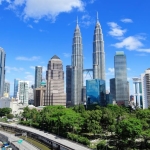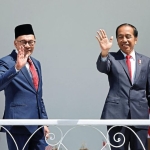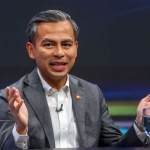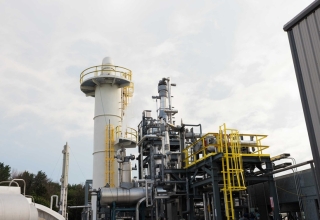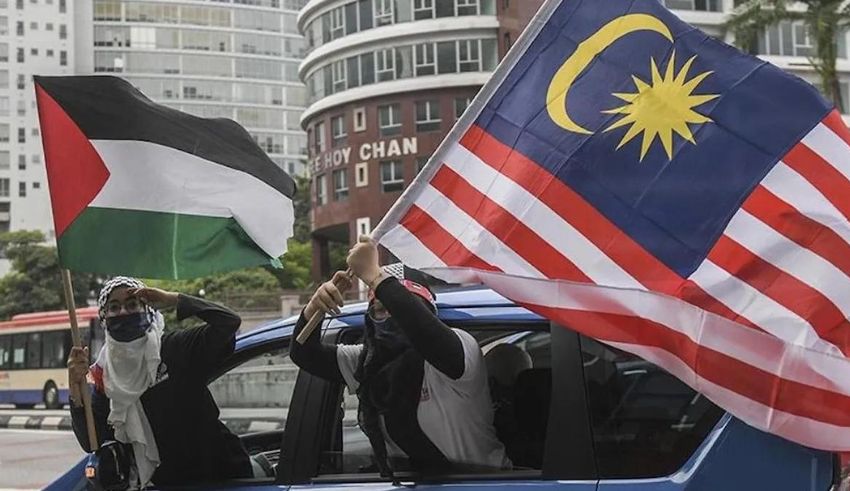
In a world marked by shifting alliances and geopolitical complexities, Malaysia stands as a steadfast advocate for the beleaguered people of Palestine. The ongoing atrocities in Gaza have once again ignited Malaysia’s unwavering spirit of solidarity and condemnation against the backdrop of an ever-evolving global landscape.
Nestled far from the epicenter of the crisis, Malaysia’s response remains sincere and driven by moral conviction. As a predominantly Muslim democracy, it’s detached from the intricate geopolitical calculations that govern the actions of other nations.
The concept of striking deals involving advanced weaponry, nuclear energy projects, or Israeli tourism, as a means to alter its longstanding stance on Palestine, is alien to Malaysia. The Malaysian government’s commitment to the Palestinian cause echoes the sentiments of its people – a dedication that transcends the political or economic realm.
A Continuous Stand
This isn’t the first time Malaysia has voiced its solidarity when hostilities escalate between Israel and Palestine. However, the current situation carries subtle nuances that hint at a more intensified response.
What distinguishes this moment is the scale and energy of public demonstrations in favor of Palestine. The rallies have swelled in size, resonating with citizens from all walks of life. Politicians from various parties are expressing the same spirit of solidarity, using fresh language and narratives to convey their support.
Malaysian Prime Minister Anwar Ibrahim embarked on a diplomatic journey, engaging with leaders from nations including Saudi Arabia, Turkey, and Egypt. His mission was to rally support for stronger actions against the crisis. Moreover, the government’s proactive stance led to the inception of Palestine Solidarity Week, aimed at showcasing unwavering support. Yet, an isolated incident emerged where fake weapons were brandished in a school, shedding light on the thin line between genuine concern and performative acts.
Critics may dismiss Malaysia’s response as mere performance. However, it’s essential to understand the limitations of one nation’s influence over the complex Gaza conflict. Instead of asking what Malaysia has achieved, the more pertinent question revolves around the lack of a collective international intervention.
Keep Reading
Social Media’s Impact
The proliferation of social media has fundamentally transformed the global narrative surrounding the crisis. A new generation of articulate, media-savvy commentators, many of them Palestinian, challenge traditional portrayals on major news networks. They articulate arguments that align with the intuitive beliefs of Malaysians.
Social media has brought the stark realities of violence and destruction into the homes of millions. Video clips, often deeply distressing, paint a vivid picture of the ongoing horrors. The sheer scale of suffering, amplified by the visceral nature of digital content, could leave a lasting imprint on the world’s collective consciousness.
In a world often overshadowed by great power rivalries, smaller nations sometimes find room for independent action. The United States’ diversion of focus towards events in Ukraine may provide Southeast Asian countries with diplomatic latitude. Malaysia and Indonesia’s unwavering rhetoric aligns with a multipolar world where China’s stance also holds significance.
Domestic Political Realities
It’s crucial to appreciate the domestic political dynamics at play in Malaysia. Accusations and counter-accusations abound as political rivals vie for the support of Malay-Muslim voters while addressing the concerns of the substantial non-Muslim minority. The spotlight remains on the humanitarian aspect of the crisis, emphasizing practical aid over symbolic gestures.
Amid this intricate interplay, Malaysians fervently hope their humanitarian endeavors will effectively reach those who need it most in Gaza.
In the midst of a tumultuous world, Malaysia’s unwavering stance on Palestine serves as a testament to the enduring spirit of solidarity, resonating from the heart of Southeast Asia.
